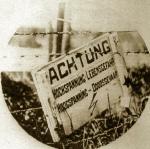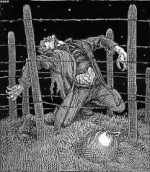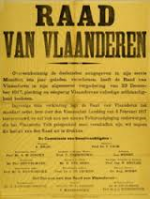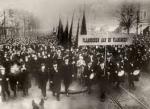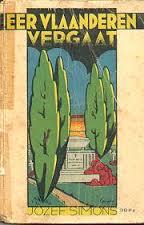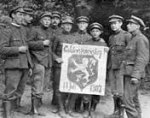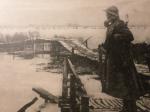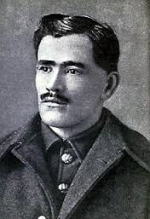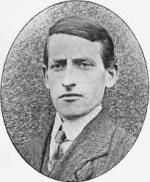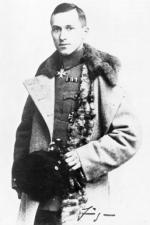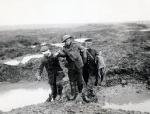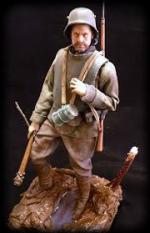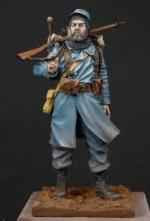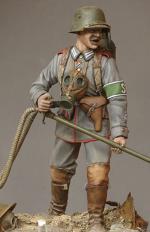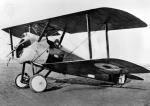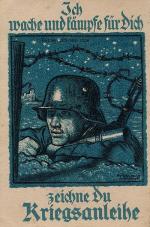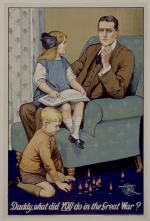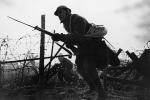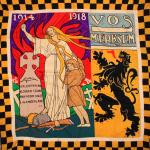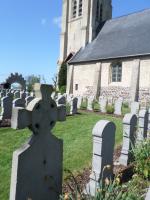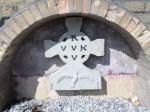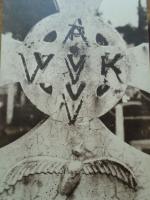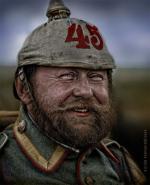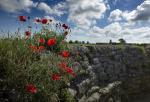|
Arras, dat ooit als Atrecht één van de mooiste en welvarendste steden van Zuid-Vlaanderen was, werd zwaar getroffen tijdens de Grote Oorlog. De strijd rond deze stad inspireerde de Schotse journalist, auteur en kunstcriticus Neil Munro (1863-1930) tot zijn gedicht 'Pipes in Arras':
In the borough toun of Arras
When gloaming had come on,
Fifty pipers played Retreat
As if they had been one,
And the Grande Place of Arras
Hummed with the Highland drone.
Then to that ravaged borough,
Champed into dust and sand,
Came with the pipers' playing,
Out of their own loved land,
Sea-sounds that moan for sorrow
On a dispeopled strand.
There are in France no voices
To speak of simple things,
And tell how winds will whistle
Through palaces of kings;
Now came the truth to Arras
In the chanter's warblings.
O build in pride your towers,
But think not they will last;
The tall tower and the shealing
Alike must meet the blast,
And the world is strewn with shingle
From dwellings of the past.
But to the Grande Place, Arras,
Came, too, the hum of bees,
That suck the sea-pink's sweetness
From isles of the Hebrides,
And in Iona fashion
Homes 'mid old effigies.
Our cells the monks demolished
To make their mead of yore,
And still though we be ravished
Each Autumn of our store,
While the sun lasts and the flowers,
Tireless we'll gather more.
Up then and spake with twitt'rings,
Out of the chanter reed,
Birds that each Spring to Appin,
Over the oceans speed,
And in its ruined castles,
Make love again and breed.
Already see our brothers
Build in the tottering fane!
Though France should be a desert,
While love and Spring remain
Men will come back to Arras,
And build and weave again.
So played the pipes in Arras
Their Gaelic symphony,
Filled with old wisdom gathered
In isles of the Highland sea,
And eastward towards Cambrai
Roared the artillery.
|


